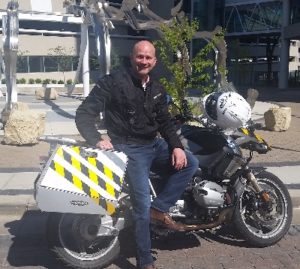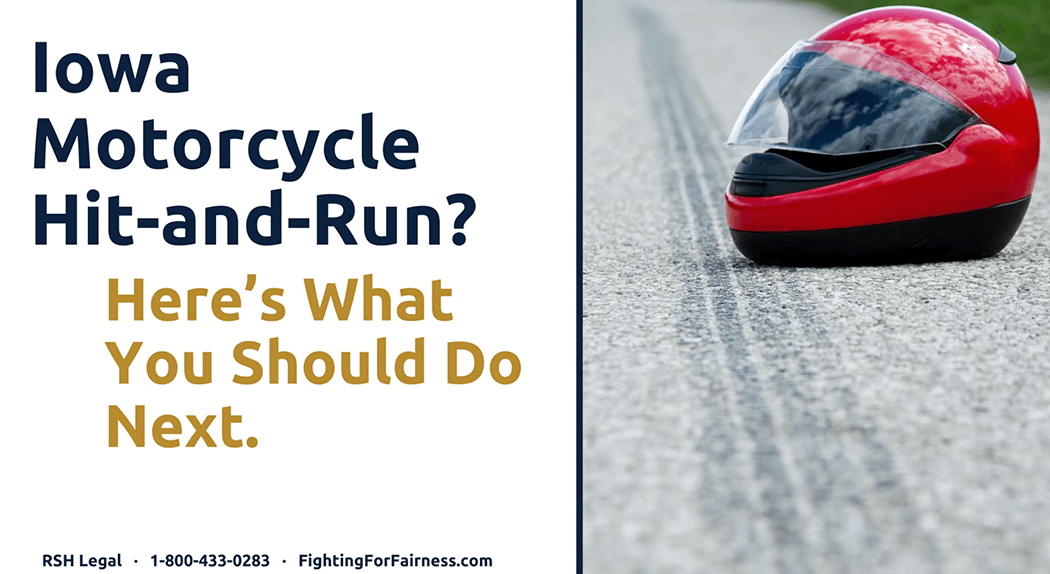
After a motorcycle accident, the last thing you may be thinking is to preserve evidence from the crash. However, this is precisely what you should do in order to protect your right to bring a personal injury claim later down the line. If you have been in a motorcycle crash, these are 8 steps that you take in the hours and days after the wreck. Taking these steps is essential for proving your case.
1. Seek Immediate Medical Attention
Don’t try to “tough it out.” Regardless of whether or not you believe you’re seriously injured, seek medical attention immediately after a motorcycle accident. Your injuries may not present themselves immediately after the crash – some physical problems don’t appear for hours or even days after a wreck.
The legal system says that the victim must prove they were injured in an accident. The best way to prove these injuries is through medical records of you being examined immediately after the crash.
2. Call Your Own Motorcycle Insurance Company
As soon as it is practical, call your motorcycle insurance company and report the crash. Ask your insurance agent what forms you may need to fill out in order to support your claim. If you do not report the accident as soon as possible to your insurance company, they may stop providing you service until you comply with all of their requests.
3. Take Detailed Notes about the Motorcycle Accident
Write down everything you can remember about the crash as soon as you get home. Draw diagrams and label them clearly. Make sure to jot down the following information:
- Time of day
- Weather
- Road conditions
- What you saw and heard
Keep these notes in a safe place so they are available when you are ready to speak to an attorney. Police reports are not always 100% accurate.
4. Arrange For Photos to Be Taken
Even if you believe the investigating officer or an insurance representative took photos of the accident, make sure to get your own. If you are injured, have someone you trust take the photographs. Make sure to get angles both up close and from a distance. These types of photos will be the most important ones to take:
- Photos of the accident location – take pictures of the directions from which each vehicle approached, any skid marks, and any debris left in the area.
- Photos of your motorcycle – make sure you take photos of the damage from all angles, including the undercarriage.
- Photos of your injuries – take pictures of all visible injuries while they are still fresh from the accident. If they are dated or time stamped, that’s even better.
- Photos of your medical treatment – any pictures of you in the hospital, with bandages, casts, or slings, and any walking aids or wheelchairs you may be prescribed.
Make sure to pay attention to the background of the photos you are taking. The photos should show the crash site and your injuries. They should not show things in the background you will later have to explain.
5. Don’t Repair Your Bike without Permission
You should ask your insurance company what procedures they require before getting your motorcycle repaired. If you don’t ask, they may refuse to pay your repair bills. The most important thing to remember is if anyone was seriously injured or killed in the crash, you should talk to an attorney before having your vehicle repaired.
6. Avoid Contact with the Other Driver’s Insurance Company
Insurance representatives are trained to take recorded statements that can then be used against you. Tell them to contact you in writing, and do not sign any paperwork from any insurance company other than your own. Before you sign anything, contact a personal injury attorney.
7. If You Have Crash-Related Traffic Fines, Talk to an Attorney
Paying a fine for a traffic offense can be used against you as an admission of guilt. Any testimony at a legal hearing can be recorded and used against you at a later date. You should talk to an attorney before you proceed with either of these things. In some cases, a personal injury attorney may be provided to you by your auto insurance company, or you can do your research and hire one yourself.
8. You Have Two Years to Settle a Claim or File a Lawsuit
Iowa law requires that a motorcycle crash victim or the victim’s family settle an injury claim, start a lawsuit, or give notice of intent to make a claim within a short period of time after the crash. Generally, the statute of limitations in Iowa is two years from the date of the injury, but you can’t wait that long to get started on your claim. There may be some circumstances that require you to act more quickly. Those can include:
- If you were injured in an accident with a semi-truck driver
- If you were injured by a drunk driver that was overserved at a bar or restaurant
- If you were a victim of a medical error during accident-related treatment
If any of these apply to your motorcycle injury case, or you have other questions, contact an experienced motorcycle accident attorney. There are biases against bikers and unique issues in bike cases. You should work with a personal injury attorney who understands these issues and who regularly handles serious motorcycle crash cases. Myself and the other lawyers at RSH Legal do. Call us today at 319-409-6575. Take care and safe riding.




